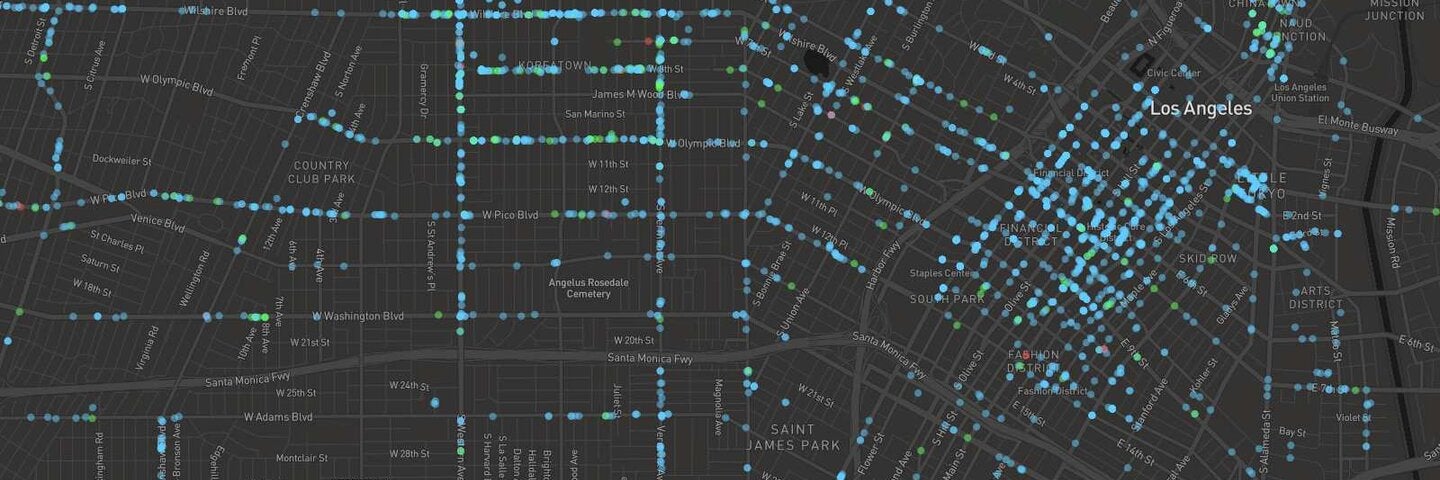GIS (Geographic Information Systems)

GIS (Geographic Information Systems)
With location as a service, cloud computing, 3D modeling and other trends, Geographic Information Systems (GIS) technologies are becoming more prevalent in everyday life. Our GIS and Geospatial Technology Programs are created in partnership with the UCLA Department of Geography, recognized internationally as a leader in research and education.
Join our online info session to learn more.
Students planning to pursue GISP certification can apply our courses toward satisfying the GISP's Educational Achievement Component. Students will earn Student Activity Hours (SAH) at a rate of 150 for our Intro course and 120 for each of the other courses. All courses are transferable and are accredited, approved by the UCLA Academic Senate as credit-bearing courses. Courses carry both lower-division (Intro) and upper-division (all other courses) undergraduate credit.
Get More Info
Programs

GIS and Geospatial Technology
Learn how to use location-based data to better understand the world. Offered in partnership with the UCLA Department of Geography, this certificate provides an introduction to the methods and techniques used within the field of GIS and geospatial technology. Available Format: Online
Courses
Advanced Geographic Information Systems (GIS)
This course is a project-based exploration of advanced topics in GIS and geospatial technology, with a focus upon spatial modeling, advanced spatial analysis and geoprocessing, spatial data manipulation, and geocomputation.
Advanced Remote Sensing
Develop an aptitude for integrating various remote sensing and geospatial analysis workflows/datasets into one unified cloud-based coding environment.
Cartography
This course introduces the methods, techniques and considerations behind geographic data visualization and Web based mapping. We will explore constructing narratives using maps with Esri's ArcGIS Story Map platform. It focuses upon data science, scientific communication, and the cartographic process, and in particular, considerations surrounding cartographic data visualization strategies.
GIS Databases and Enterprise GIS
This course introduces the design, development, and management of geospatial databases, including multi-user enterprise geodatabases. In addition to learning about relational database design, students will construct and maintain spatial databases.

